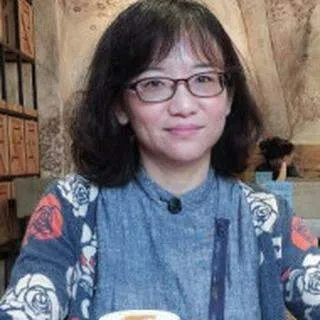Moving away from the Chinese-language market: The renaissance of 'new Taiwan dramas'
Academic Fang-chih Yang charts the development of Taiwan dramas from the 1990s to the present. She observes that the industry has gone through various shifts, from making idol dramas to China dramas to "new Taiwan dramas" (新台剧). Till today, the experiment continues with the challenge of fitting local stories into global popular genres.
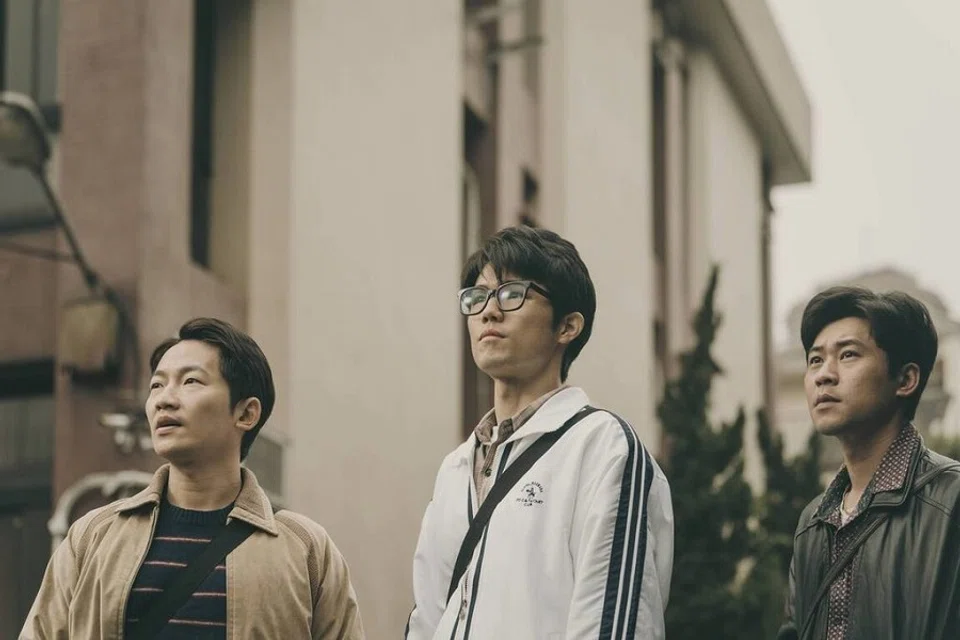
In the early 1990s, Taiwan's television landscape underwent a significant transformation. Democratisation and liberalisation led to the lifting of the language ban on Taigi (台语 taiyu, Taiwanese Hokkien), the legalisation of cable TV and the establishment of Formosa Television (FTV), in the process challenging the KMT-controlled television networks.
Moreover, China's successful satellite launch led to the establishment of Star Chinese Channel, which aimed to create a "Chinese television global village" by producing Mandarin cultural content. The Mandarin-based Chinese-language market, however, contradicted democratic sentiments in reviving Taiwan's local languages and cultures, as evidenced by the popularity of the Taigi xiangtu ju (乡土剧, dramas with local flavour) pioneered by Formosa TV.
In promoting the profit value of idol dramas, xiangtu ju was constructed as its constitutive other, considered only for the domestic market, lacking quality, and therefore having no future.
Mandarin as the determining factor
The changing landscape brought about by deregulation led to the rise of idol dramas, an imitation of Japanese trendy dramas. The success of the drama Meteor Garden (2001) facilitated a discursive shift, specifying Mandarin as the determining factor for generating profits in the Chinese-language market. In promoting the profit value of idol dramas, xiangtu ju was constructed as its constitutive other, considered only for the domestic market, lacking quality, and therefore having no future. China, now at the centre of the Chinese-language market, attracted many Taiwanese idol drama producers, entertainers and investors to go to China, with the producer of Meteor Garden leading the trend of runaway production in China.
What followed was a decade of stagnation around the 2010s, exacerbated by Taiwan's economic integration with China. With the election of the KMT regime in 2008, China changed its strategy to "institutional building", stabilising long-term economic and cultural integration for political "unification". The Chinese-language market was mobilised to achieve this political project, distinguished by three characteristics. First, reversing the trend of democratisation, traditional Chinese culture was revived as the common heritage across the strait, echoing China's "the great rejuvenation of the Chinese nation". Taiwan was constructed as having a comparative advantage in the Chinese-language market due to its preservation of traditional Chinese culture.
The lure of the Chinese-language market led to the brain drain of Taiwan's talents and investments to China, resulting in the hollowing out of Taiwan's television industry.
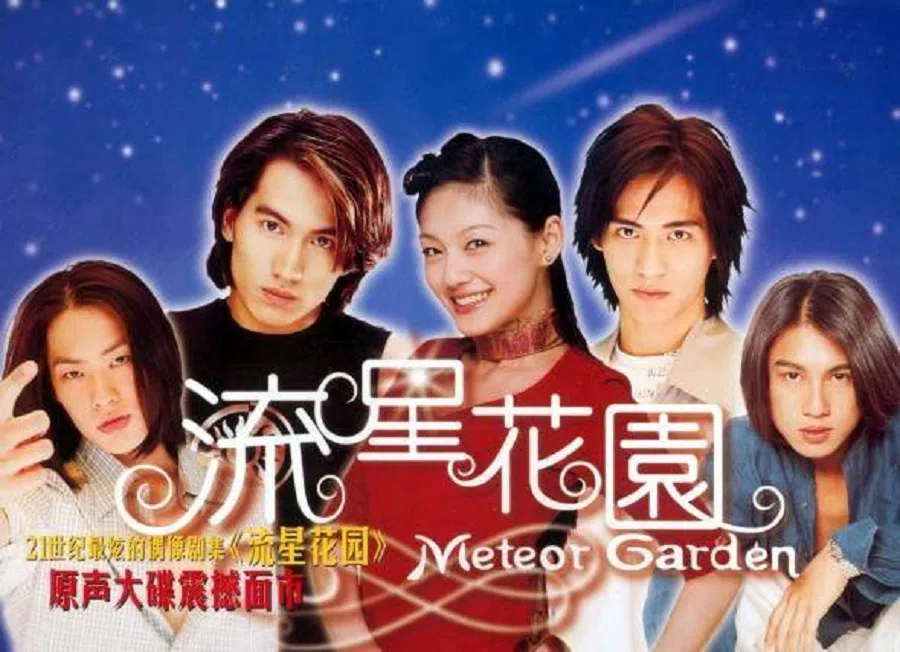
Second, traditional Chinese culture was constructed as a valuable commodity due to China's market size. Third, in the name of pursuing profits in the Chinese-language market, the Ma Ying-jeou regime enforced cultural policies to meet China's demands, including loosening restrictions on China's drama imports, increasing investments in China and facilitating co-productions with China.
China also implemented "Benefiting Taiwan" policies (惠台政策) to expedite Taiwan's investments, including moving censorship from the central government to the local government for efficiency and categorising Taiwan's co-productions with China as China's domestic productions so that they could be featured in the golden slots. The lure of the Chinese-language market led to the brain drain of Taiwan's talents and investments to China, resulting in the hollowing out of Taiwan's television industry. Moreover, since 2012, China has become the largest importing country for TV dramas in Taiwan.
... the appeal to traditional Chinese culture, involving an arranged marriage of sorts and the female protagonist giving up her career aspirations for the family, did not fare well considering the dominant gender sensibilities in Taiwan.
From idol dramas to 'Chinese dramas'
Enticed by the prospects that the Chinese-language market promised, SET TV pioneered a new genre called "Chinese dramas" (华剧 huaju) in the hope of creating the Chinese wave against the Korean wave. Following the trade discourse in the Chinese-language market that Taiwan preserves authentic traditional Chinese culture and excels in family and love dramas, SET launched the drama Inborn Pair (2011), emphasising how filial piety works within intimate family dynamics and using a premodern, arranged marriage as the major plot driver. However, the appeal to traditional Chinese culture, involving an arranged marriage of sorts and the female protagonist giving up her career aspirations for the family, did not fare well considering the dominant gender sensibilities in Taiwan.
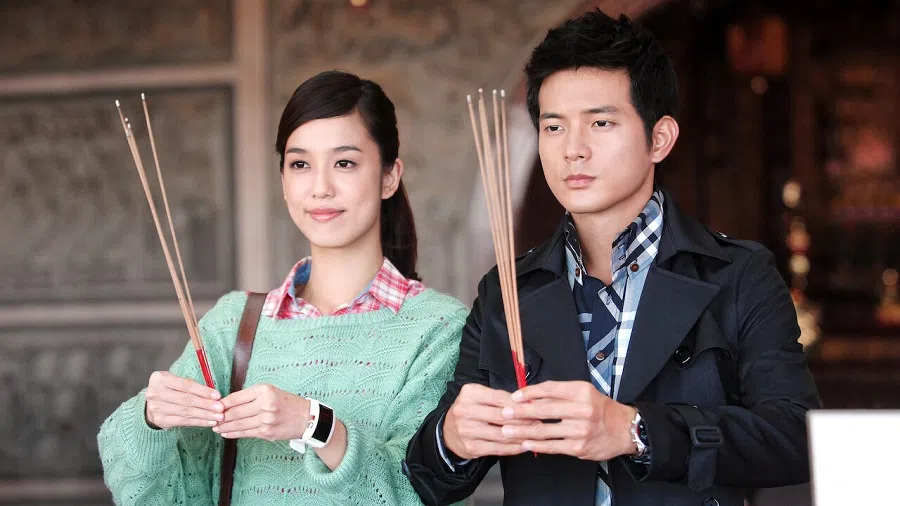
Huaju did not create the Chinese wave as intended. However, in following the discourse of the Chinese-language market, the genre reproduced the cultural hierarchy that privileges Chineseness and degrades Taiwaneseness. This is seen in the representations of the Taigi-speaking supporting characters who are characterised as poor, simplistic, vulgar, but also innocent, pure, and amiable while waishengren (外省人, mainlanders who migrated to Taiwan after the end of WWII in 1945 and largely after the Chinese Civil War in 1949), even in sidekick roles, are represented as well-off and educated.
Negotiating politics and commercial interests becomes a tough task, particularly with relation to history.
Politics in co-productions
Another strategy to pursue China's market is through co-production with China. Co-productions tend to follow the trade discourses in combining the strengths of both countries, with China excelling in historical and war genres and Taiwan in love and family dramas. However, co-production needs to serve China's political goal for "unification". Negotiating politics and commercial interests becomes a tough task, particularly with relation to history.
In following the political mandate of "one family across the strait" (两岸一家亲), China demands to rewrite history to make the Taiwanese, the early migrants, into Chinese. Home (2012), the first co-produced epic on the history between 1945-1949 aimed to serve this political purpose. The show talks about a Japanese-Taiwanese doctor who was conscripted by the Japanese but refused to fight the Chinese in the battlefield because his ancestors came from "China" and that made him Chinese. This led him to develop a close relationship with the KMT general, who eventually betrayed the KMT for the CCP as the CCP truly represented the well-being of the Chinese nation. Through the general, he got involved in a romantic relationship with his daughter while being forced to marry a Japanese-Taiwanese woman due to family pressure.

In this love line, the Chinese woman is characterised as educated, modern and cosmopolitan while the Taiwanese woman, adopted by Japanese, is represented as traditional, local and backward. Despite such obvious political inscriptions, the show did not pass censorship in China because its ending, with the death of the Chinese woman, implied a potential interpretation for the Republic of China (ROC)'s separation from the People's Republic of China (PRC). The co-production company in China, Zhejiang Talent Television & Film Company, used the Taiwanese version as raw material and re-edited it, adding a different ending emphasising the rise of China as a global power and the need to commemorate their love through unification. Additionally, the actors from Taiwan were all re-labelled as from China-Taiwan, and the directors and producers of the original script were deleted.
The export of Taiwan's dramas to China and co-productions have been on the decline since 2009. These failed experiments, motivated by the discourse of the Chinese-language market, speak volumes about the illusory nature of China's market. They functioned mostly as a political tool in re-centring Chineseness for the making of a shared culture across the strait, resulting in the reproduction of the old cultural hierarchy that privileges Chineseness over Taiwaneseness. Seeing it as a national crisis, the Democratic Progressive Party (DPP) government, elected in 2016, oriented its cultural policy to turn away from China's market.
The new platform economy allowed the DPP government to promote the concept of "the more local, the more global", encouraging cultural productions to tell Taiwan's stories for global audiences.
Turning away from China and the renaissance of 'new Taiwan dramas'
Taiwan's media named 2016 "the birth of the OTT era" (OTT元年) as it was the year that streaming platforms such as Netflix and iQIYI were established in Taiwan, changing television's production, distribution and consumption. At the same time, the DPP replaced the KMT Ma regime and implemented new cultural policies oriented toward global audiences in turning away from China's market.
The renaissance indicates a successful turning away from China's market.
The government's establishment of the Taiwan Creative Content Agency (TAICC) in 2019 played a significant role in supporting and integrating production at various levels and offering assistance for international distribution. The new platform economy allowed the DPP government to promote the concept of "the more local, the more global", encouraging cultural productions to tell Taiwan's stories for global audiences. This cultural policy should also be seen as part of the global trend of nation branding which operates through the logic of commercial nationalism in that the government uses television dramas for nation branding while the drama industry uses nationalism for generating profits.
Chinese-language market remains a battleground
The public television whose mission is to make quality TV dramas also played a role in boosting this renaissance. In collaborating with public television, many producers began to experiment with new genres and innovate drama productions. Qseries' success in making popular television dramas, while at the same time helping to cultivate new directors and scriptwriters as well as train actors and actresses, ushered in a new era of "new Taiwan dramas" (新台剧). The success of The Teenage Psychic (2017), co-produced by Public Television, InFocus Asia, and HBO Asia, further consolidated the new trend in drama production. These factors led to the "renaissance of Taiwanese TV dramas", with greater funding from partnering with government support, streaming platforms and local production companies. As a result, more genres are being experimented in telling local stories.
... China's censorship and economic stagnation diminished the desirability of their market. Many cultural workers returned to Taiwan, along with financial investments.
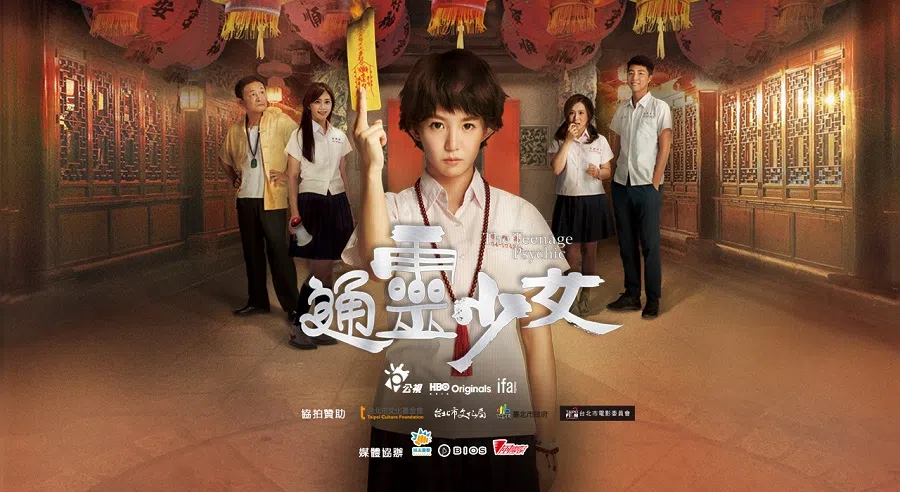
The renaissance indicates a successful turning away from China's market. China, however, was anxious in re-asserting the significance of its own market for the political end of cultural integration. In 2018, China unilaterally announced another round of "Benefiting Taiwan" policies (惠台31条), lifting the number of Taiwan's imports and the restrictions on co-productions, as well as the cap on the working hours and shows that Taiwanese entertainers were allowed to perform in China.
But these new policies turned out to be ineffective as China's censorship and economic stagnation diminished the desirability of their market. Many cultural workers returned to Taiwan, along with financial investments. However, the Chinese-language market remains a battleground. Pro-China factions still assert the significance of China's market. China's censorship is said to be a test of the creativity and competence of the cultural producers and the future of Taiwan's TV drama production lies in co-production with China whose quality and market can guarantee Taiwan's success in the platform economy. But as reality has gained ground, China's market has lost much appeal, effective mostly in the pro-China circle.
Realism has become the primary mode as opposed to the earlier "fantasy" mode of idol dramas.
Experimenting with new genres and production techniques
The new Taiwan dramas produced in the era of renaissance display several features distinct from the earlier dramas made for the China-centred market. First, more genres, including detective, heritage, medical, office/work, historical dramas and so on, are being experimented with and produced to reach various taste clusters that Netflix and other platforms identify with. Taiwan no longer confines itself to the love and family dramas promoted by the advocates of the Chinese-language market.
Second, local issues that are seen as concerning the majority, identified through an algorithm, are now incorporated into drama narratives. Realism has become the primary mode as opposed to the earlier "fantasy" mode of idol dramas. Third, there is a shift of perspective to centring the Taiwanese as the subject of history as opposed to the previous ROC historiography which sees Taiwan as standing on the margin of China. This is most obvious in the historical and heritage dramas. For example, Seqalu: Formosa 1867 (2021) positions Taiwan as an ocean nation where different players from the West and the mainland continent interact with the indigenous peoples, and Gold Leaf (2021) offers criticisms of the corruption of the ROC-KMT when they took over Taiwan.
Taigi, Hakka, indigenous languages, Japanese and English are used, depending on the era portrayed, for reality effects.
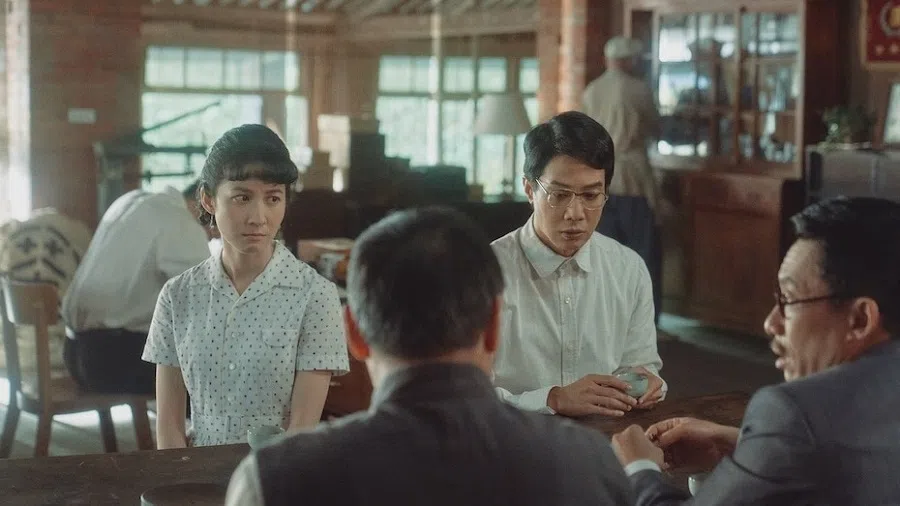
And most recently, Hotel Saltwater (2024) deals with the brutality of the White Terror during the martial law era. Several family dramas, such as The Making of an Ordinary Woman (2019), also touch briefly on the repressive authoritarian past to signify "Taiwaneseness". Finally, related to the discovery of local history is the issue of language. Taigi, Hakka, indigenous languages, Japanese and English are used, depending on the era portrayed, for reality effects. However, this does not mean that Mandarin is being displaced or replaced, as the majority of new Taiwan dramas still feature Mandarin as the primary language.
... as more and more genres are being experimented with, there is an increase in the diversity of representations of the historically oppressed people.
Diversity and voices being heard
However, despite the shift in perspective, the colonial representations of the Taiwanese during the KMT-ROC regime still live on, especially in family and love dramas, as they have become the generic verisimilitude in Taiwan's cultural productions. The Taigi-speaking mother is still predominantly portrayed as loving but uneducated and vulgar. The difference is that they are now given more narrative space and afforded more psychological complexity. In addition, in some dramas (such as A Boy Named Flora (2017)), the Taigi-speaking male characters have now come to the centre stage as protagonists, as opposed to their earlier absence. But as more and more genres are being experimented with, there is an increase in the diversity of representations of the historically oppressed people.
... in pursuing global audiences, the local stories sometimes are presented in ways that appeal to the ideology of global capital, contradicting the government's project of nation-branding/building.
To conclude, the structural factors of the renaissance of new Taiwan dramas are the arrival of streaming platforms and the new cultural policies implemented by the DPP regime that uses drama production for nation-branding and nation-building. "The more local, the more global" has thus been promoted as a formula for success. Taiwan is currently learning and experimenting with putting local stories into global popular genres from the US, UK, and Japan; however, in pursuing global audiences, the local stories sometimes are presented in ways that appeal to the ideology of global capital, contradicting the government's project of nation-branding/building. Such tensions remain an issue to be resolved. However, given the structural changes of the industry which allow for more experimentation, more budget and more trained talents, there is still hope for Taiwan's television dramas to continue to thrive.
